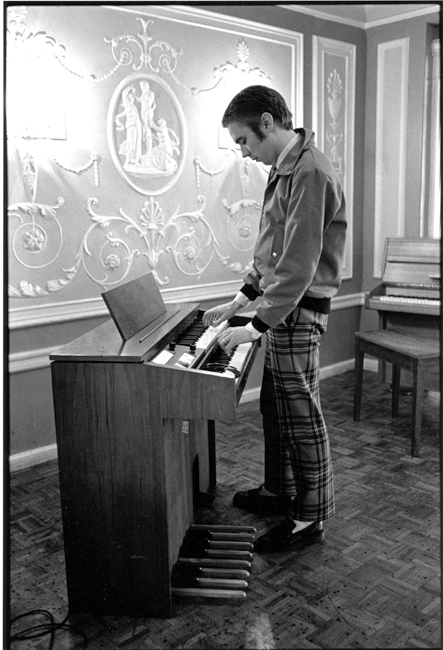
In 1984 Jerry Dammers’ song ‘Free Nelson Mandela’ was released, it became a global hit and an anti-apartheid anthem. I shot this photo of Jerry (above) on the Specials’ Seaside Tour. We were staying in a b&b and I heard organ music coming from the dining room – there was Jerry was playing in the empty room.
Jerry talks about writing the song : “When I was a schoolkid in Coventry, I used to put up anti-apartheid stickers. And when I was 14, I demonstrated against the Springboks rugby tour [South Africa’s whites-only team]. But funnily enough, I hadn’t actually heard of Mandela until I went to a concert at Alexandra Palaceto celebrate his 65th birthday. I picked up lots of leaflets at the concert and started learning about Mandela. At that point, he’d been imprisoned for 21 years and the leaflets said the shoes he had in jail were too small for his feet, so I put that in the lyrics. At the time, the Specials were in chaos. Terry Hall, Lynval Golding and Neville Staple had left to form the Fun Boy Three, but I’d carried on with the name the Special AKA and a fluctuating lineup. There were lots of arguments so I asked Elvis Costello to produce the song, because I thought he’d bring everyone together. The track felt very important: trying to get it done before the whole thing fell apart was exceedingly stressful.
So I had Elvis there, as well as Dave Wakeling and Ranking Roger from the Beat, and I invited Lynval back as a gesture of goodwill. The chorus was sung by three top session singers including Caron Wheeler, who went on to join Soul II Soul.We shot the video in a church hall with these kids doing crazy jazz dancing, and we used the sleeve to give people information about the Anti-Apartheid Movement.
The song was banned in South Africa, but they played it at football matches, which were communal black gatherings. It was an international hit and helped build momentum against apartheid. Dali Tambo [son of exiled ANC president Oliver] approached me to form a British wing of Artists Against Apartheid, and we did loads of concerts, leading up to a huge event on Clapham Common in 1986 that attracted a quarter of a million people. That was the proudest day of my life.”
Nelson Mandela was finally released in 1990, he told an audience in Trafalgar Square “Like slavery and apartheid, poverty is not natural. It is man-made and can be overcome and eradicated by the actions of human beings.” He saw that the ending of apartheid iwas only the beginning – and that’s as true now as it ever has been. RIP Nelson Mandela.
